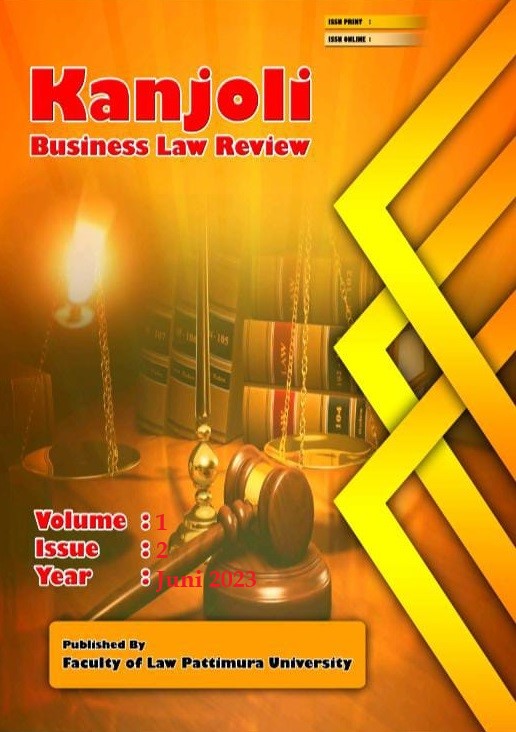Perspektif Penetapan Pajak Penambahan Nilai Pada Investasi Aset Kripto Di Era Digital
Abstract
In this pandemic era, investment in crypto assets in Indonesia is increasingly attractive as one of the current breakthroughs in digital transactions. Even though crypto prices are very extreme and have a high risk, they are still more attractive to investors to invest in crypto. To be able to anticipate risks in crypto asset trading in Indonesia, the Government has established a regulatory policy on Value Income Tax on crypto asset investments in 2023, in order to reduce the risks of various digital transactions. The research objectives that become a legal gap in this study are: are there government regulations that can reduce the level of risk in digital transactions in crypto asset investments for business actors in Indonesia, and how can the determination of value added tax by the government be able to provide legal certainty for people who use crypto transactions in Indonesia. The research method used in this paper is normative legal research. This research is directed to be able to provide a description of the implications of legal certainty for value income tax in investing in crypto assets through digital transactions, as a policy to prevent risks for business actors. The results of the study show that the optimal regulation of Value Added Tax (VAT) on Crypto Asset Trading is regulated in the Regulation of the Minister of Finance of the Republic of Indonesia Number 68/PMK.03/2022, can reduce the risks that occur, if there are legal issues in the current crypto asset trading. As well as the implications of any profits derived from bitcoin trading activities being reported to the Directorate General of Taxes. Based on Law Number 42 of 2009 concerning the Third Amendment to Law Number 8 of 1983 concerning Value Added Tax on Goods and Services and Sales Tax on Luxury Goods, it includes a Value Added Tax (VAT) of 10%. And the application of legal certainty in the new regulations in the Regulation of the Minister of Finance of the Republic of Indonesia Number 68/PMK.03/2022.
Downloads
References
Darmawan, Oscar, Bitcoin Mata Uang Digital (ed 1, Jasacom.com, 2014)
Dibrova, A., Virtual currency: New Step in Monetary Development. (Procedia- Social and Behavioral Sciences. 2016)
Firmansyah dan M. Ikhsan Dacolfany, Uang Elektronik dalam Perspektif Ekonomi Islam (ed 1. CV IQRO, 2018)
Flo, ‘Pemerintah Disarankan Buat Regulasi tentang Kripto’, (JPNN, 2020) <https://www. jpnn.com/news/pemerintah-disarankan-buat-regulasi-tentang-kripto> accessed 31 Agusrus 2022.
Marzuki, Peter Mahmud, Penelitian Hukum (ed. 1, Kencana Prenada Media Group, 2019)
Sudikno Mertokusumo, Mengenal Hukum Suatu Pengantar (ed 1, Liberty, 2007)
Wijaya, Dimaz Anka, Bitcoin Mining dan Cryptocurrency Lainnya (ed 1, Jasacom.com, 2018)
Copyright (c) 2023 Ronald Saija

This work is licensed under a Creative Commons Attribution-NonCommercial 4.0 International License.
Authors who publish their manuscripts in this Journal agree to the following conditions:
- The copyright in each article belongs to the author, as well as the right to patent.
- Authors are able to enter into separate, additional contractual arrangements for the non-exclusive distribution of the journal's published version of the work (e.g., post it to an institutional repository or publish it in a book), with an acknowledgment of its initial publication in this journal.
- Authors are permitted and encouraged to post their work online (e.g., in institutional repositories or on their website) prior to and during the submission process, as it can lead to productive exchanges, as well as earlier and greater citation of published work.
- Authors have the right to self-archiving of the article (Author Self-Archiving Policy)











